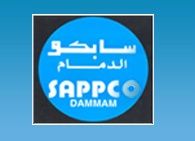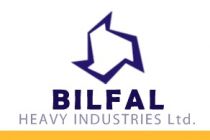International WELL Building Institute Formally Launches WELL v2
Following two years of extensive development, in-use application and review, the International WELL Building Institute (IWBI) today formally launched the latest version of the WELL Building Standard – WELL v2. The newly graduated standard is the most resilient and responsive version of IWBI’s rating system to date and serves as the foundation upon which the entire WELL ecosystem is built.
“Better buildings, vibrant communities and stronger organizations have been at the core of our mission since we launched WELL in 2014,” said IWBI Chairman and CEO Rick Fedrizzi. “It was a long road to get here, but we’ve confirmed that WELL v2 is implacably strong, robust and resilient in the face of every challenge. From a global pandemic to social justice, WELL v2 has proved to be a relevant, scalable and global rating system that’s responsive, inclusive, technically robust, customer-focused and applicable for any organization or space type.”
WELL v2 is a vehicle for buildings and organizations to deliver more thoughtful and intentional spaces that contribute to improved human health and well-being. It includes a set of strategies that aim to enhance human health through design interventions, operational protocols and policies and a commitment to fostering a culture of health and well-being. Built upon the pioneering foundation of the first version of the WELL Building Standard (WELL v1), WELL v2 draws expertise from a diverse community of WELL users, medical and design practitioners, public health professionals and building scientists around the world.
WELL v2 consolidates previous iterations and pilots into a single rating system that is designed to accommodate all project types and sectors. The system is intended to grow in specificity and specialty over time, adapting to accommodate diverse project types and geographies and in response to new evidence and ever-evolving public health imperatives. The standard is centered on 10 concepts – Air, Water, Nourishment, Light, Movement, Thermal Comfort, Sound, Materials, Mind and Community – that impact human health and well-being.
Every feature within these concepts is underscored by available evidence that links design, policy and building-centric strategies to health and well-being outcomes; is third-party verified by Green Business Certification Inc. (GBCI) through documentation and/or performance testing; has been tested through WELL v1 and/or the WELL v2 pilot, demonstrating adoption and uptake by more than 3,300 projects from a wide range of typologies representing more than 413 million square feet across 54 countries; and includes outside input from a diverse community of health and design practitioners, subject matter experts, users and other third parties.
“As the leading tool for advancing health and well-being globally, the WELL Building Standard helps people to work, live, perform and feel their best. With WELL as our vehicle, IWBI helps to translate what we know into what we practice,” said IWBI President Rachel Gutter. “We’ve channeled all that we have learned into a more accessible, adaptable and equitable rating system, which continues to be anchored by the latest scientific research and industry best practices. WELL v2 has demonstrated it is dynamic, resilient, validated and ready to change the world.”
Gutter added, “Since the launch of the WELL v2 pilot in 2018, we’ve worked tirelessly to incorporate feedback from thousands of members of our global community – making certain that no stone was left unturned, no strategy left unexamined and no topic left untested. Now, as WELL v2 has graduated from pilot stage, this moment marks the culmination of years of co-creation that will ripple throughout buildings, communities and organizations throughout the world.”
The WELL v2 pilot was adopted quickly by IWBI’s global community and since its release more than 3,300 projects have registered to pursue WELL Certification under the pilot. A key element of the development process for WELL is securing input from a variety of individuals. During the two-year pilot phase, WELL v2 underwent continuous improvement and refinement through a rigorous development process, including a six-month public comment period generating hundreds of comments; the review and feedback from more than 150 WELL concept advisors; thousands more comments during the final stakeholder review; and eight published addenda to provide clarifications and strategies supporting the implementation of the WELL v2 pilot across different projects and in different locations. In addition, the IWBI Task Force on COVID-19, comprised of 16 globally acknowledged thought leaders in the role of co-chair and nearly 600 professional and market leaders and experts from 30 countries, collectively crowdsourced thousands more comments during a 40-day sprint to further assess ways in which WELL v2 could be further strengthened to better support prevention and preparedness, resiliency and recovery.
From enhanced coaching support and research deep-dives to opportunities to connect and learn from peers, WELL v2 brings with it a suite of enhancements, products and services that will reset how organizations engage with WELL and the growing global community. Through the rest of the year and beyond, IWBI will roll out new resources and tools that will transform the way individuals can engage with one another and IWBI’s digital platform. Already available, a new WELL v2 Skybridge Tool is designed to help practitioners evaluate key similarities and differences between the WELL v2 pilot and WELL v2.
With the graduation of WELL v2 from pilot, registration for new WELL v2 pilot and WELL v1 projects will close on December 31, 2020. The WELL AP exam will continue to be based on WELL v1 until the end of 2021.
To learn more about WELL v2, visit https://v2.wellcertified.com/wellv2/en/overview and join an upcoming webcast, Let's celebrate: WELL v2 is here, on September 24, 2020.
About the International WELL Building Institute
The International WELL Building Institute (IWBI) is leading the global movement to transform our buildings, communities and organizations in ways that help people thrive. It focuses exclusively on the ways that buildings and communities, and everything in them, can improve our comfort, drive better choices, and generally enhance, not compromise, our health and wellness. WELL v2 is the most recent version of its popular WELL Building Standard (WELL), and the WELL Community Standard pilot is a district scale rating system that sets a new global benchmark for healthy communities. The WELL Health-Safety Rating is an evidence-based, third-party verified rating for all facility types, focused on operational policies, maintenance protocols, emergency plans and stakeholder education to address a post-COVID-19 environment now and broader health and safety-related issues into the future. IWBI mobilizes the wellness community through management of the WELL AP credential, the pursuit of applicable research, the development of educational resources, and advocacy for policies that promote health and wellness everywhere. IWBI is a participant of the United Nations Global Compact, the world’s largest corporate citizenship initiative, and helps companies advance the UN Sustainable Development Goals (SDGs) through the use of WELL. More information on WELL can be found here.
International WELL Building Institute, IWBI, the WELL Building Standard, WELL v2, WELL Certified, WELL AP, WELL Portfolio, WELL Portfolio Score, The WELL Conference, We Are WELL, the WELL Community Standard, WELL Health-Safety Rating, WELL Health-Safety Rated, WELL Workforce, WELL and others, and their related logos are trademarks or certification marks of International WELL Building Institute pbc in the United States and other countries.
View source version on businesswire.com: https://www.businesswire.com/news/home/20200915006099/en/



